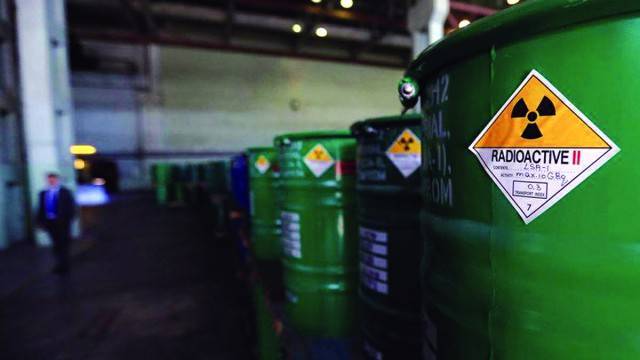
As the global markets face economic recession, India’s illegal uranium market appears to be flourishing. According to the World Nuclear Association, India ranks at the 9th position among the largest uranium producing countries. It is one of the largest Uranium importer since the 1990s. Uranium is used as a source of nuclear energy and in the production of explosives. However, the black-market trade of uranium has surged in recent years due to lack of strong monitoring regulations. It undermines the international conventions, such as the code of conduct by the International Atomic Energy Agency (IAEA), and poses great security threats, particularly to the neighbouring states.
In August 2024, three individuals in Bihar’s Gopalganj district, India, were arrested after 50 grams of a suspected radioactive substance, Californium, worth millions in Indian currency, was found in their possession. This incident has again highlighted concerns over India’s nuclear security infrastructure. This was not just a one-off incident; theft and illegal sale of nuclear and radioactive material in India is a recurring phenomenon. In February 2022, two Indian nationals and six other people were apprehended in Nepal for illegally possession of “uranium like substance, which was being reportedly smuggled from India. According to a chronology published by the South Asia Strategic Stability Institute (SASSI), from 1994 to 2021 a total of 18 events were documented in India involving the theft and loss of more than 200 kg of nuclear material, such as uranium. These are just reported incidents, there might be many unreported incidents. This indicates the failure of the nuclear security system at multiple levels.
There is no independent nuclear regulatory body in India. The Atomic Energy Regularly Board (AERB) operates under the Department of Atomic Energy, due to which it has limited autonomy and effectiveness. According to the United National Security Council Resolution 1540, all signatory states must have a strict domestic regulatory control and monitoring system for the safety of nuclear material. The resolution demands that stringent laws must be in practice to ensure that not an iota of the material is left unaccounted from the uranium mines to the enrichment facilities. India has also signed and ratified the Convention on Physical Protection of Nuclear Material (CPPNM) and its 2005 amendment. Unfortunately, so far the UN or any other international organisation has failed to effectively hold India accountable for recurring incidents of theft and illicit trade of nuclear and other radioactive materials. These mishaps cannot be shoved under the carpet, and the criminal silence of the international community raises a question mark on the globally binding mechanisms.
The nature of incidents in India suggests that the people employed at the nuclear facilities or mining sites could be colluding with a network of national gangs or working independently.
Nuclear security is a national matter of any state; however, the illegal trade of uranium means that non-state actors can easily access the nuclear material to make “dirty bombs” or “conventional explosives” and the threat of nuclear terrorism increases, especially when India is already facing numerous insurgencies in its various regions. Therefore, it also becomes a global security concern. The nature of incidents in India suggests that the people employed at the nuclear facilities or mining sites could be colluding with a network of gangs or working independently. There is an obvious gap in the material accounting and control system. Furthermore, the Indian lack of control over nuclear and radioactive material poses alarming threats to regional security, especially the neighbouring states. China and Pakistan both have expressed grave concerns over the potential existence of a black market for sensitive, dual-use materials within India. They worry that the recurring lapse in Indian nuclear security empowers the non-state actors against them. Pakistan has categorically requested the international community to investigate and guarantee safety and security of nuclear materials. Likely, China also requested the international community to be stringent about the non-proliferation programs to reduce security risks. If the international bodies show leniency towards states like India, then the other states wil; perceive the international non-proliferation mechanisms as discriminatory and deceptive. The Washington-based Nuclear Threat Initiative (NTI) released its Nuclear Security Index ranked India at number 20 out of 22 states in terms of nuclear security, below Pakistan and China. In fact, the IAEC has expressed a positive view of the nuclear security arrangements in Pakistan.
The repeated events of uranium theft expose the nuclear security failure in India. It is high time for India to improve its nuclear security and control mechanisms. In the absence of stringent security, unscrupulous elements within the system and other terrorist outfits in the country can acquire the nuclear material and trade in the black market. The acquired uranium can be used for terrorism purposes, leading to gruesome consequences. IAEA and the International community should closely monitor and pressurise India to ensure security of nuclear materials. In fact, if India desires proper integration into the global non-proliferation architecture such as membership of Nuclear Suppliers Group (NSG), then it should be contingent upon India’s commitment and ability to streamline its nuclear security measures.

